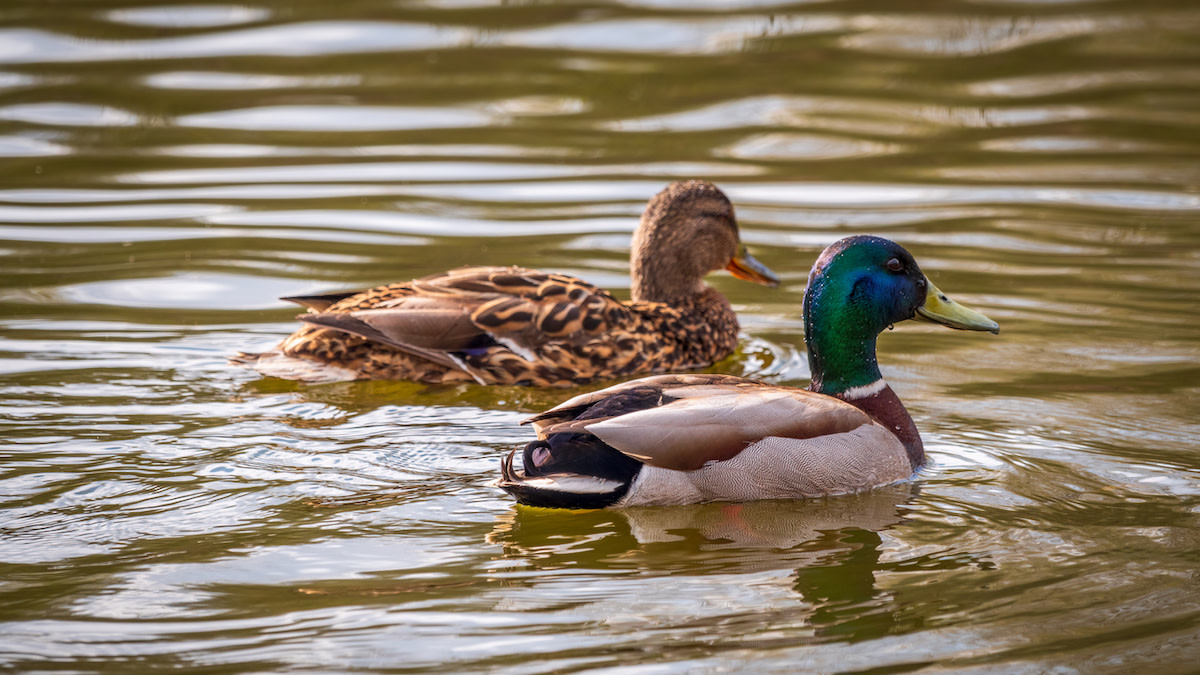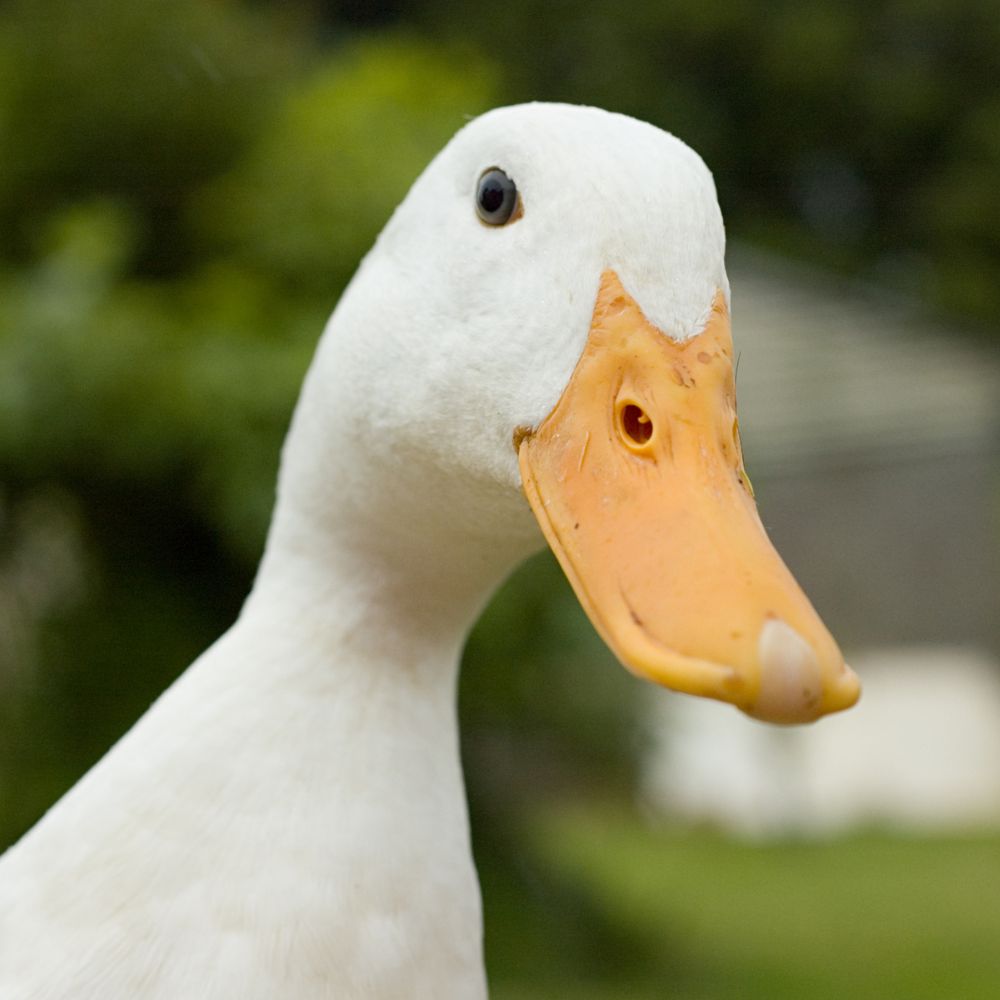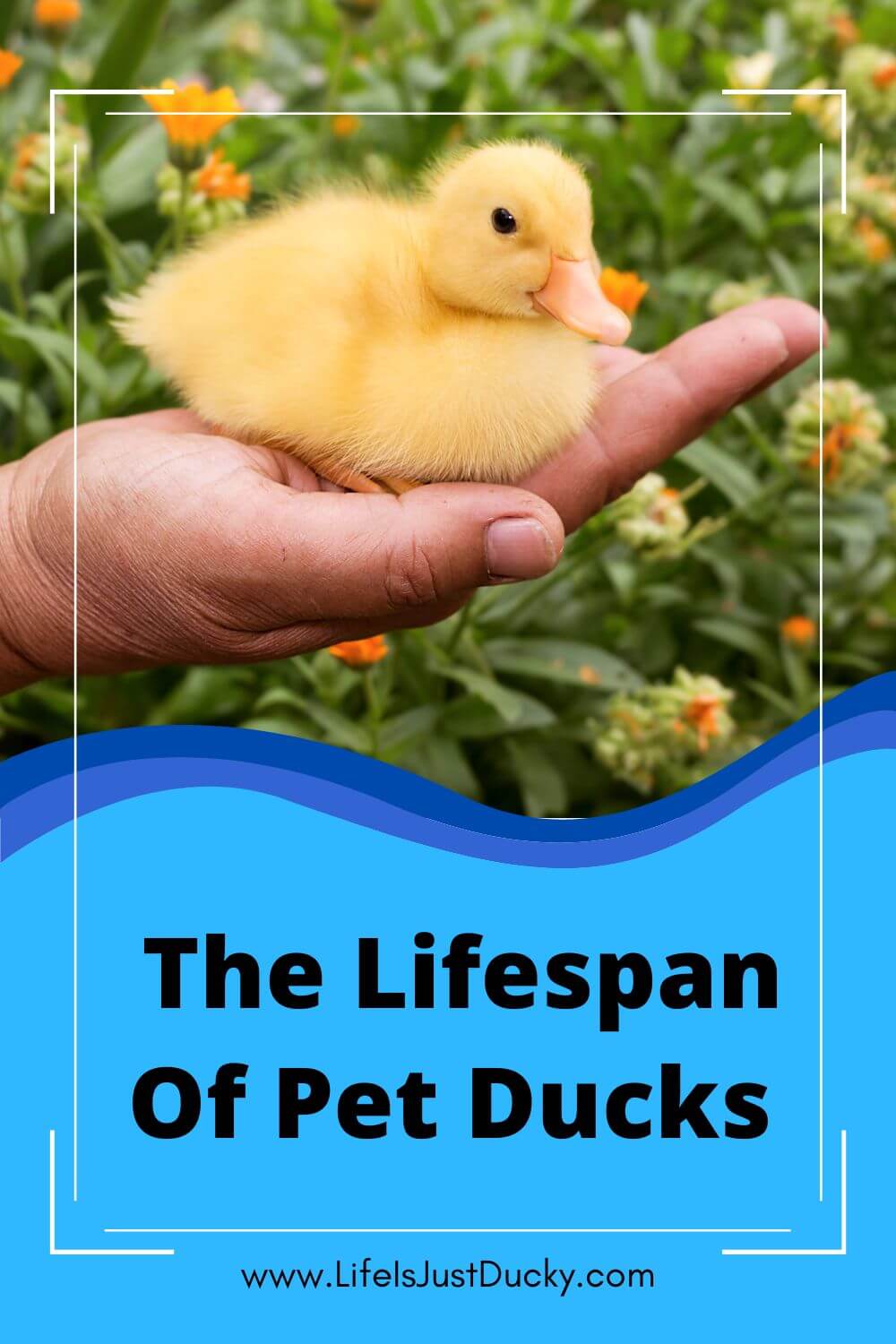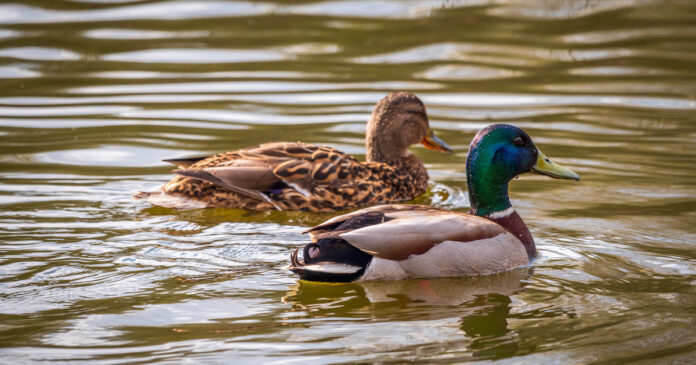Ducks typically live for 2-12 years, depending on the species, environment, and predators they face. Ducks have varying lifespans, influenced by factors such as habitat, diet, and protection from predators.
Understanding how long ducks live can help in conservation efforts and ensuring their well-being in the wild. Ducks are fascinating creatures that play important roles in ecosystems, making it crucial to appreciate and protect them. By learning about their lifespans and behaviors, we can better appreciate the beauty and significance of these waterfowl.
Let’s explore the lifespan of ducks and how we can support their longevity in nature.
Introduction To Duck Lifespans
Ducks are fascinating creatures that captivate our attention with their vibrant plumage and charming quacks. But have you ever wondered how long these delightful birds live? In this article, we will explore the factors that influence duck lifespans and the average lifespan ranges you can expect. Understanding the lifespan of ducks is not only interesting but also crucial for their conservation and overall well-being.
Key Factors Influencing Longevity
Duck lifespans can vary based on several key factors that influence their longevity:
- Species: Different species of ducks have different lifespans. For example, mallards typically live for 5-10 years, while domestic ducks can live up to 15 years or more.
- Habitat and Environment: Ducks that inhabit natural wetlands and have access to clean water and abundant food sources tend to live longer. The quality of their habitat plays a crucial role in their overall health and well-being.
- Genetics: Just like humans, genetics also play a role in the lifespan of ducks. Some individuals may have inherited genes that make them more resilient and long-lived.
- Predators and Threats: The presence of predators and exposure to various threats, such as pollution or hunting, can significantly impact the lifespan of ducks. Ducks that face higher risks may have shorter lifespans.
Average Lifespan Ranges
How Long Do Ducks Live? The average lifespan ranges for different species of ducks can be quite diverse. Here are some general estimates:
| Duck Species | Average Lifespan |
|---|---|
| Mallard | 5-10 years |
| Pekin Duck | 10-15 years |
| Muscovy Duck | 8-12 years |
| Wood Duck | 12-15 years |
Keep in mind that these are general estimates, and individual ducks may live longer or shorter lives depending on the aforementioned factors. Additionally, proper care, nutrition, and veterinary attention can also contribute to extending a duck’s lifespan.
Wild Vs. Domesticated Ducks
Wild ducks have an average lifespan of 2-3 years, while domesticated ducks can live up to 10 years or more in a protected environment. The difference in lifespan is due to factors such as predation, habitat, and access to food sources.
When it comes to the lifespan of ducks, it’s important to consider whether they are wild or domesticated. Wild ducks face several survival challenges that can significantly impact their lifespan. On the other hand, domesticated ducks enjoy care and protection at home, which can help them live longer and healthier lives.
Survival Challenges In The Wild
Wild ducks face several challenges that can affect their lifespan, such as predators, hunting, and disease. Predators like foxes, raccoons, and birds of prey can attack ducks and reduce their lifespan. Additionally, ducks are hunted for their meat, feathers, and eggs, which can also impact their survival. Ducks can also contract various diseases in the wild, such as avian influenza and duck plague, which can be fatal.
Care And Protection At Home
Domesticated ducks, on the other hand, enjoy care and protection at home, which can help them live longer and healthier lives. Duck owners can provide their ducks with a safe and comfortable environment, proper nutrition, and medical care. Ducks that are kept as pets or for egg production can live up to 10-15 years, which is longer than their wild counterparts. In conclusion, the lifespan of ducks depends on several factors, including their environment, care, and protection. Wild ducks face several challenges that can impact their survival, while domesticated ducks enjoy care and protection at home, which can help them live longer and healthier lives.
Species Variations
When it comes to the lifespan of ducks, different species exhibit varying longevity. Some duck breeds have been known to live for an impressively long time, while others have shorter lifespans. Let’s take a closer look at the species variations in duck lifespans.
Long-lived Duck Breeds
Among the duck breeds, there are a few that have been recorded to live longer than others. These breeds are known for their remarkable lifespan and ability to thrive for many years.
Mallard Ducks: Mallard ducks, one of the most common duck species, can live up to 20 years in the wild. With their adaptable nature and ability to survive in diverse habitats, Mallards have a relatively long lifespan compared to other duck breeds.
Muscovy Ducks: Muscovy ducks are another breed known for their longevity. These large domesticated ducks can live up to 15 years or more when provided with proper care and a suitable environment.
Pekin Ducks: Pekin ducks, popular for their meat production, can also live a decent number of years. On average, they have a lifespan of 5 to 10 years, although some individuals have been reported to live longer.
Shorter-lived Species
While some duck breeds enjoy a longer lifespan, there are others that have relatively shorter lifespans. These species tend to have a higher mortality rate and face various challenges in their natural habitats.
Wood Ducks: Wood ducks, known for their vibrant plumage, have a shorter lifespan compared to other duck breeds. On average, they live for around 5 to 6 years in the wild. However, in captivity, where they are protected from predators and have access to adequate food and shelter, their lifespan can extend beyond 10 years.
Ruddy Ducks: Ruddy ducks are small diving ducks that have a relatively short lifespan. They typically live for 3 to 5 years in the wild. Their shorter lifespan can be attributed to their migratory behavior and vulnerability to predation.
Teal Ducks: Teal ducks, including the Green-winged teal and Blue-winged teal, have an average lifespan of 5 to 7 years. These small ducks face numerous challenges during migration and nesting, which may contribute to their shorter lifespan.
Understanding the species variations in duck lifespans is crucial for anyone interested in duck keeping or observing these fascinating waterfowl in the wild. By providing suitable habitats and proper care, we can help maximize the lifespan of these beautiful creatures.

Credit: www.themeateater.com
Diet’s Impact On Duck Longevity
Ensuring a healthy diet is essential for the longevity of ducks. A well-balanced diet provides the necessary nutrients to support their growth, development, and overall health. In this section, we will explore the nutritional requirements of ducks and common dietary threats that can affect their lifespan.
Nutritional Requirements
Ducks have specific nutritional needs to thrive and live a long and healthy life. Their diet should consist of a combination of proteins, carbohydrates, fats, vitamins, and minerals. Here are the key nutritional requirements for ducks:
| Nutrient | Importance |
|---|---|
| Proteins | Essential for growth, feather development, and muscle repair |
| Carbohydrates | Provide energy for daily activities and bodily functions |
| Fats | Offer a concentrated source of energy and aid in insulation |
| Vitamins | Support various bodily functions, including immune system health |
| Minerals | Essential for strong bones, muscle function, and overall well-being |
Common Dietary Threats
While a nutritious diet is crucial for duck longevity, it’s equally important to be aware of common dietary threats that can harm their health and reduce their lifespan. Here are some common dietary threats to ducks:
- Poisonous Plants: Ducks should avoid consuming plants such as hemlock, foxglove, and nightshade, which can be toxic to them.
- Processed Foods: Feeding ducks with processed human food, especially those high in salt, sugar, and additives, can lead to nutritional deficiencies and health problems.
- Stale or Moldy Food: Ducks should not be fed with stale or moldy food as it can cause digestive issues and potentially be toxic.
- Unbalanced Diets: Providing an unbalanced diet lacking in essential nutrients can result in malnutrition, weakened immune system, and increased susceptibility to diseases.
By understanding the nutritional requirements of ducks and being mindful of potential dietary threats, we can ensure that these beautiful creatures have the best chance of living a long and healthy life.
Predation And Threats
Ducks face various predation and threats throughout their lives, which can impact their survival and longevity. Understanding these factors is crucial for ensuring the well-being of duck populations.
Natural Predators
Ducks are vulnerable to a range of natural predators, including raccoons, foxes, hawks, and snakes. These predators often target ducklings, as they are smaller and more defenseless. In addition, owls and eagles pose a threat to adult ducks, especially during nesting and roosting periods.
Human Impact On Duck Survival
Human activities can significantly impact the survival of ducks. Habitat destruction due to urbanization and agricultural expansion reduces the availability of suitable nesting and foraging areas for ducks. Pollution of water bodies also poses a threat to ducks, affecting their food sources and overall health. Furthermore, hunting and poaching remain significant concerns for duck populations, particularly in areas where regulations are not effectively enforced.
Health And Disease
Ducks, like all living creatures, are susceptible to various health issues and diseases. Understanding the common illnesses that ducks may encounter, as well as the necessary veterinary care and prevention measures, is crucial for ensuring their well-being and longevity.
Common Illnesses
Ducks are prone to several common illnesses, including respiratory infections, botulism, and duck viral hepatitis. Respiratory infections can result from exposure to damp or drafty conditions, leading to symptoms such as sneezing, coughing, and nasal discharge. Botulism, caused by bacteria in contaminated water sources, can cause paralysis and death. Duck viral hepatitis is a contagious disease that affects the liver and can lead to high mortality rates.
Veterinary Care And Prevention
Regular veterinary check-ups are essential for monitoring the overall health of ducks. Vaccinations for diseases such as duck viral enteritis and avian influenza can help prevent the onset of these illnesses. Additionally, ensuring clean and suitable living conditions, providing a balanced diet, and limiting exposure to potential disease vectors such as wild birds and contaminated water sources are crucial preventive measures.
Reproduction And Life Cycle
Ducks have a fascinating Reproduction and Life Cycle that involves specific breeding habits and survival rates of their offspring.
Breeding Habits
Ducks are known for their monogamous breeding habits, where a male and a female form a pair for a breeding season.
They build nests on the ground near water bodies and often line them with feathers for insulation.
Offspring Survival Rates
- Ducklings are precocial and can swim and feed themselves shortly after hatching.
- The survival rate of ducklings is high due to their ability to adapt quickly to their environment.
- However, they face threats from predators such as raccoons, foxes, and birds of prey.

Credit: thefrugalchicken.com
Conservation Efforts
Preserving the habitats of ducks is crucial to ensuring their longevity.
Habitat Protection
Protecting wetlands and water bodies is essential for duck conservation.
Species Rehabilitation Programs
Rehabilitation programs help injured ducks to recover and return to the wild.
In Captivity: Ensuring Long Lives
Optimal Living Conditions
Provide adequate space for ducks to roam freely.
Ensure clean water and a balanced diet daily.
The Role Of Duck Sanctuaries
Duck sanctuaries offer protection and care for ducks.
They provide a safe environment for rehabilitation and long-term care.
The Oldest Ducks On Record
Record-holding Ducks
The oldest ducks have been known to live up to 20 years.
Factors Contributing To Their Longevity
- Healthy diet and access to clean water
- Safe environment free from predators
- Genetic factors influencing lifespan
- Regular exercise and ample space to roam

Credit: www.lifeisjustducky.com
Frequently Asked Questions
How Long Do Ducks Live In The Wild?
Ducks typically live for 2-12 years in the wild, depending on the species and environmental factors. Factors such as predation, food availability, and habitat quality can impact their lifespan.
What Is The Average Lifespan Of A Domestic Duck?
The average lifespan of a domestic duck is around 8-12 years. Proper care, nutrition, and a safe environment can contribute to their longevity.
Do Ducks Live Longer In Captivity?
Yes, ducks can live longer in captivity, often reaching 15-20 years with proper care, nutrition, and a secure environment. Regular veterinary check-ups and appropriate living conditions are essential for their well-being.
Conclusion
The lifespan of ducks varies greatly depending on the species and environmental factors. Domestic ducks tend to live longer than wild ducks, with some breeds living up to 20 years. It’s important to provide proper care and nutrition to ensure the health and longevity of pet ducks.
As with any animal, it’s important to cherish the time we have with them and give them the best life possible.


